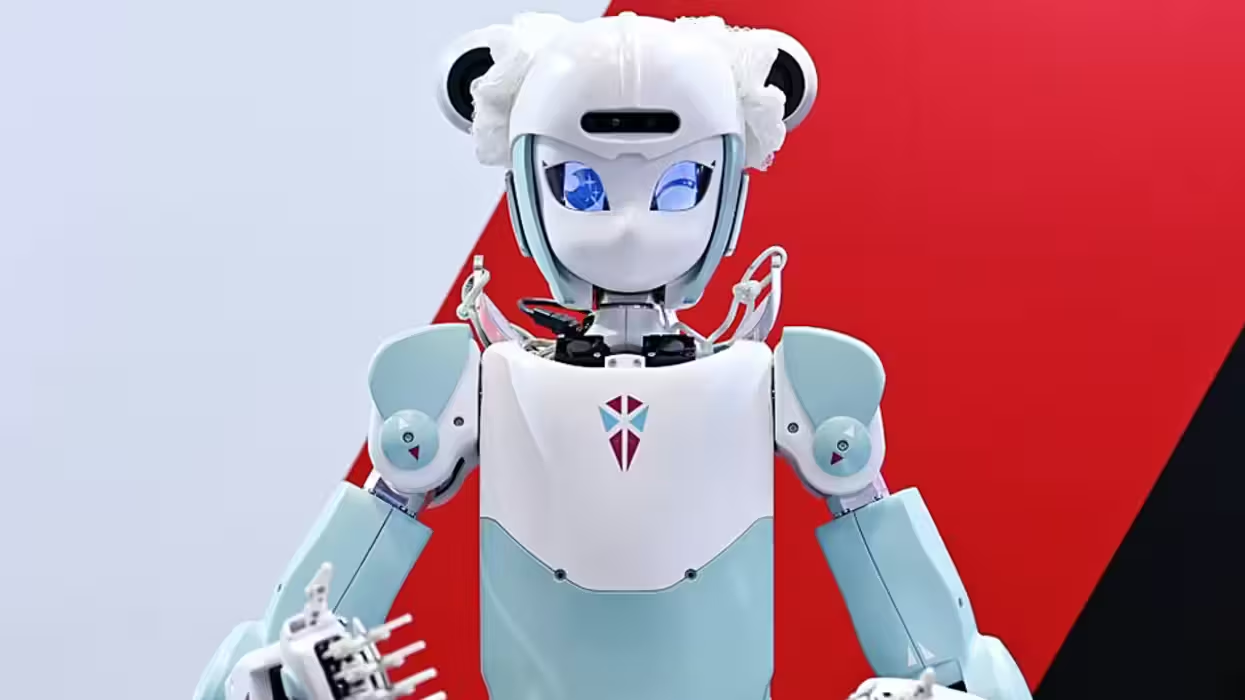
© 2025 Blaze Media LLC. All rights reserved.
Futuristic Mouse and Keyboads Eliminate Iconic 'Click' Sounds -- Will You Miss It?
August 22, 2012
A concept as old as personal computers themselves is the mouse. Whether it be a stand-alone device or a more streamline touchpad embedded on a laptop both make an iconic click noise as affirmation confirming you've just performed a desired function.
That sounds could someday become obsolete though, only to be maintained for future generations in the Museum of Endangered sounds.
The Gizmodo reports the company Synaptics is developing a "ForcePad"that doesn't require you to lift a finger for so much as a gentle tap. The force-detection technology simply senses how much pressure you apply as you navigate around the screen.

Gizmodo reports that the technology is able to sense pressure from all five fingers on the pad at once and therefore allows for more gesture commands:
Instead of constantly swiping and scrolling, you can just push down at the end of a gesture to make the action continue. One example Synaptics gave me was for movie playback. Say you wanted to fast-forward. Instead of clicking 3-5 times to get to 8x or 32x playback, you could just tap the fast-forward button and hold it down. The harder you press down, the faster it skips forward. When you let go, it plays back at normal speed. Or imagine rocking your fingers left and right to move through the Windows 8 home screen. Subtle, but an awesome idea nonetheless.

Why does Gizmodo think this technology will replace the mouse? It's thinner, has no moving parts (less chance for breakage) and it will incorporate touch sensing for an accurate, consistent feel for the user, no matter the device it is being used on.
Check out this Synaptics video about ForcePad:
Gizmodo goes on to note that Synaptics is looking to use a similar concept for keyboard redesign as well. ThinTouch would be even skinnier than traditional keys at 2.5 millimeters and outfitted with touch sensors. This would give laptops the opportunity to become thinner, have increased accuracy and even incorporate gesture commands via the keyboard as well:
But just because there's less downward motion doesn't necessarily mean the keys will be mushy. Synaptics designed the ThinTouch keys to have a slight sideways motion to them, which apparently makes the keyboard feedback feel deeper than it actually is. Synaptics conducted blind testing of the product against other popular laptop keyboards and claim that subjects found the feedback of the ThinTouch to be as satisfying, if not more satisfying than Apple's keyboard in many cases.
Watch Synaptic's animation about ThinTouch:
Gizmodo points out there seems to be a good chance that technology in the works by Synaptics could make it to a computer near you someday as the company already has a strong hold with the market for laptop trackpads.
Related:
- 'Tablet Touches You Back': Improved Touchscreen Texture With Electrostatic Technology
- Could Your Hand Become a Touchscreen? New Technology Makes It Happen
(H/T: Huffington Post)
Want to leave a tip?
We answer to you. Help keep our content free of advertisers and big tech censorship by leaving a tip today.
Want to join the conversation?
Already a subscriber?
more stories
Sign up for the Blaze newsletter
By signing up, you agree to our Privacy Policy and Terms of Use, and agree to receive content that may sometimes include advertisements. You may opt out at any time.
Related Content
© 2025 Blaze Media LLC. All rights reserved.
Get the stories that matter most delivered directly to your inbox.
By signing up, you agree to our Privacy Policy and Terms of Use, and agree to receive content that may sometimes include advertisements. You may opt out at any time.






